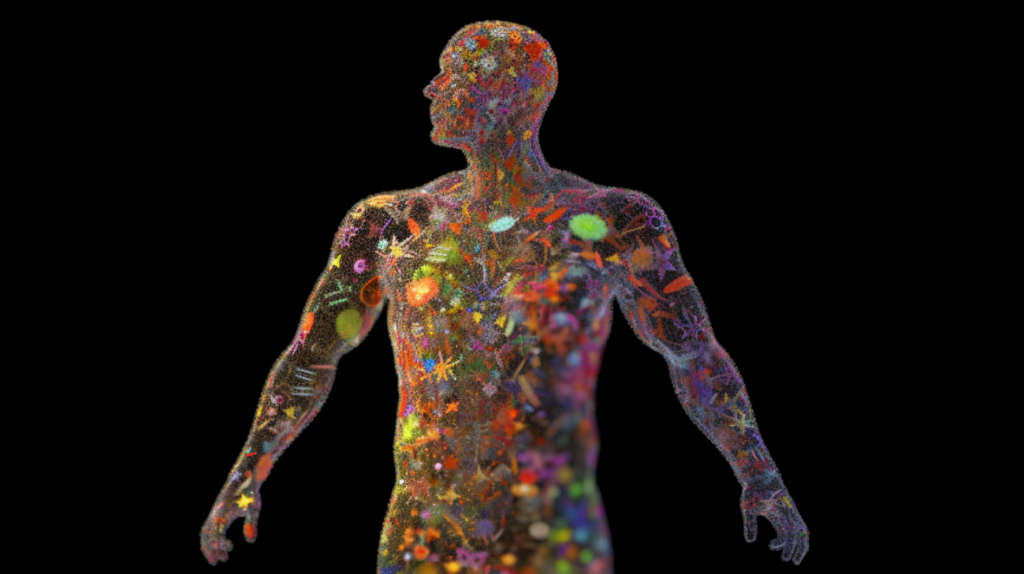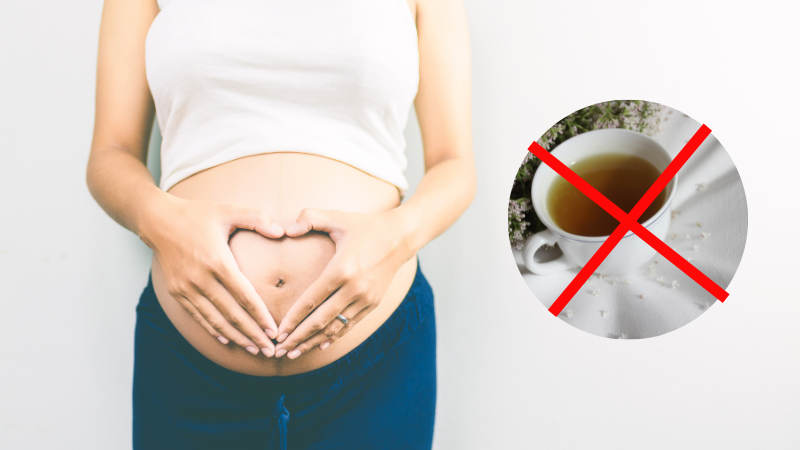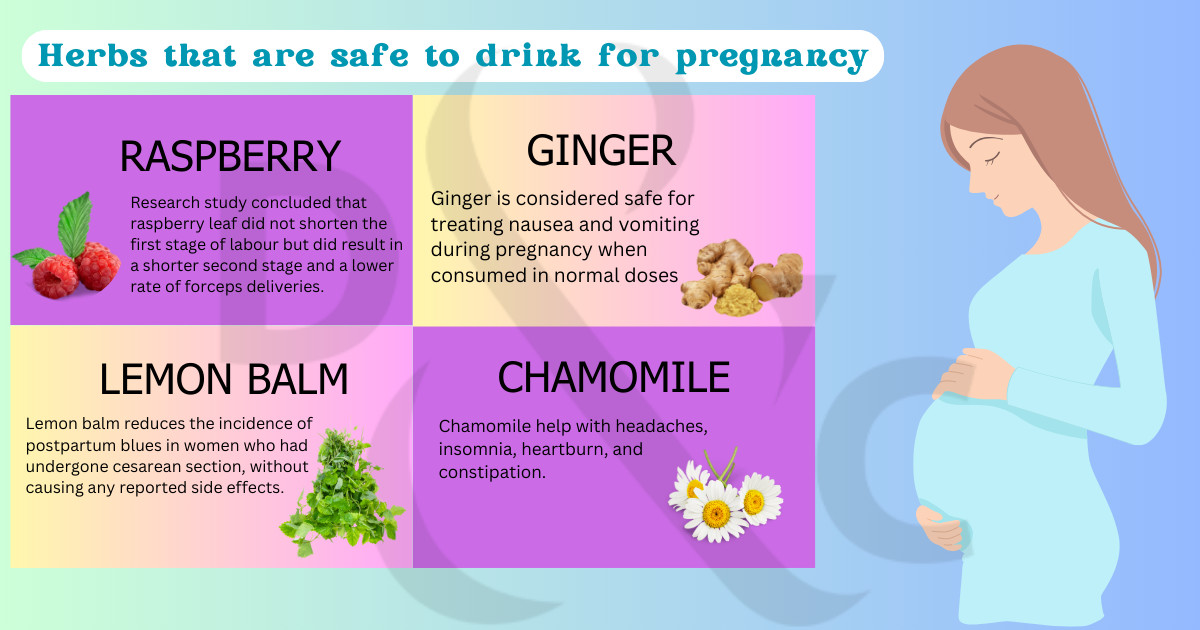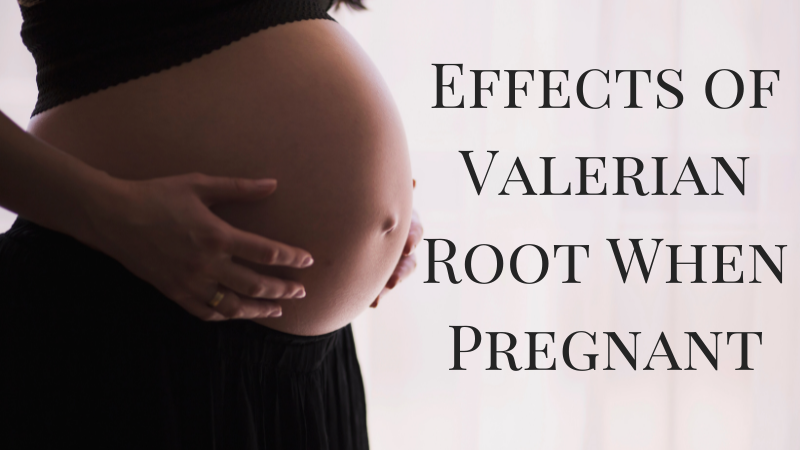Pregnancy is a transformative period in a woman’s life, marked by a myriad of physical and emotional changes. As expectant mothers navigate this journey, they often seek natural remedies to alleviate common pregnancy-related issues like insomnia, anxiety, and stress.
One herbal remedy that has garnered attention is valerian root, known for its calming properties. But a significant question looms large; Is valerian root when pregnant a safe option?
Understanding the safety and benefits of valerian root during this crucial life stage is not just a matter of personal well-being; it’s a matter of ensuring the healthiest possible start for your unborn child.
So, whether you’re an expectant mother curious about herbal alternatives, or a person simply seeking information to quench your knowledge thirst, this article is designed to equip you with the necessary understanding. Our aim is to provide a basis for a sound working knowledge of the effects of valerian root when pregnant, delving into both its potential benefits and safety concerns.
Let’s unravel the complexities of using valerian root when pregnant in an effort to empower you in making informed decisions for both yourself and your baby.
Table of Contents
What is Valerian Root Is it Safe?
So before we delve into the effects of valerian root during pregnancy, it’s crucial to first understand what valerian root is and its general uses.
Valerian, scientifically known as Valeriana officinalis, is a perennial herb native to North America, Asia, and Europe. The plant has been a staple in traditional medicine for centuries, particularly its root, which is most commonly used for its sedative and hypnotic properties. 1
The root of the valerian plant is rich in a variety of active constituents, including: 2
- Sesquiterpenes of the volatile oil (such as valeric acid) 3
- Iridoids (valepotriates), and 4
- Free amino acids including 5
- γ-aminobutyric acid (GABA)
- Tyrosine
- Arginine, and
- Glutamine

A long-trusted, but carefully used traditional herbal remedy with a rich history and a complex chemical makeup, valerian root is to be respected. Its primary use in modern medicine is as a sedative and hypnotic, particularly for treating mild to moderate insomnia. 6 7
The HerbiTea Team have carefully sourced the best Valerian Root available to add to their Sleepy Tea blend. Before using this product, it is worth discussing the ingredients with your Doctor to ensure you avoid any potential conflicts with existing medication.
It is worth noting that due to the lack of reliable long-term safety studies and regulatory oversight, the efficacy of valerian root remains a subject of ongoing research and discussion among institutional healthcare professionals.
Chemical Components and Uses of Valerian Root
The sedative and antispasmodic properties of valerian root are attributed to its rich composition of valerenic acids, monoterpenes, and sesquiterpenes, along with iridoid glycosides.
Among these, the previously mentioned sesquiterpenes, found in the root’s oil, are believed to be the key contributors to its biological activity. 8
Even though it is thought that a specific part of valerian root oil is mainly responsible for its calming effects, it’s more likely that all the special ingredients in the root work together to help you feel better. Scientists have found that some parts of the root can help you feel relaxed, while others work with brain chemicals to calm you down. 9
4 Key Considerations: Is Valerian Root Safe During Pregnancy?
Valerian root has been a trusted go-to herbal remedy for centuries, known for its versatile range of uses. Some of the most common applications include:
- Menopause Symptoms
- Valerian root helps alleviate menopausal symptoms by significantly reducing the severity and frequency of hot flashes. In a study involving 68 menopausal women, those who took Valerian capsules three times a day for 8 weeks experienced meaningful reductions in both the severity and frequency of their hot flashes compared to those who took a placebo. 10
- Sleep Aid
- It is effective in promoting sleep and preventing associated disorders like anxiety. Research suggests that the whole root, or rhizome, of valerian could offer more reliable effects for improving sleep quality. It is generally considered a safe herbal remedy for individuals aged between 7 and 80 years. Researchers emphasise that valerian root may be a safe and effective way to promote sleep.
- Anxiety Relief
- Valerian root has been historically used for treating anxiety. It is found to have a calming effect that can help reduce anxiety and is believed to interact with neurotransmitters in the brain, such as GABA, which helps regulate mood and stress levels. This interaction can lead to reduced anxiety symptoms, making valerian root a natural alternative for anxiety management. 11
- Skeletal Muscle Relaxant
- It has been studied for its potential effects on skeletal muscle problems. However, to this date, the evidence remains broad and inconsistent. Researchers suggest that while valerian root has been traditionally used for treating muscle issues, scientific studies have not yet conclusively proven its effectiveness in this area. Therefore, it’s important to approach the use of valerian root for musculoskeletal problems with caution and consult a healthcare provider for proper diagnosis and treatment. 12
Valerian Root During Pregnancy: What You Need to Know
Let’s take a moment to consider herbs and pregnancy. While many people turn to herbal remedies to manage pregnancy-related issues, simply believing them to be safe because they are natural, in some cases, can be problematic. The reality of the situation is at times more complex.
The widespread perception that herbal products are harmless is arguably reinforced by the lack of regulation in many countries. This is why understanding more about using valerian root when pregnant is so important.
So, as much as we love taking a natural approach, and cutting out unnecessary pharmaceuticals, at times, plant-based treatments can have their own set of risks. So apply suitable caution for your needs.
It is worth noting that some herbal products, according to Researchers, may not even contain the number of herbs stated. And any pregnancy-related claims made in such situations add to the difficulty in determining safe use. 13

Additionally, there are risks with some Suppliers cutting corners. Sadly, this at times is just the reality of faceless business online. None of this is said to promote fear but to advise caution and encourage due diligence. We need to acknowledge there is the potential for some products to be at times contaminated with harmful metals like arsenic, lead, and cadmium.
I don’t need to go into detail with you about how heavy metals like these can cross the placental barrier and pose health risks to the fetus, even at low levels.
However, it might surprise you to learn that Researchers have identified that prenatal exposure to cadmium was connected to low birth weights. These metals can alter physiological changes during pregnancy, and they may have long-term negative impacts on your child. 14
Therefore, it’s crucial to use certified herbal preparations to ensure both the correct dosage and the absence of toxic contaminants and visit a professional healthcare provider to ensure what you are taking is good for you.
Is It Safe to Use Valerian Root When Pregnant?
If you are considering valerian root while pregnant, it’s important to consult with your trusted healthcare professionals who can provide personalised advice. It is particularly essential to take care when using products like this during pregnancy or breastfeeding. 15
Often, there are alternative medications with well-established safety profiles that can be used instead of valerian. Sit tight, we will take a look at some of these in a moment. So, if valerian root isn’t critical for your well-being, it may be best to avoid it during your pregnancy, and while breastfeeding to prevent any potential complications. 16
If you’re considering using valerian root when pregnant, the more informed you are before you discuss this with your healthcare provider the better. An informed conversation about complementary medicine is a balanced one, and the more you know, the better they can guide you in making safe choices for both you and your baby.
Herbs While Pregnant: Alternatives to Valerian Root
There are other herbal remedies that have undergone clinical testing and are considered safe for use during pregnancy. Generally considered to be safe for use during pregnancy you may wish to research the following further:

- Raspberry
- Raspberry leaf tablets were found to have no adverse effects on either the mother or the baby when consumed from 32 weeks gestation until labour. The study concluded that raspberry leaf did not shorten the first stage of labour but did result in a shorter second stage and a lower rate of forceps deliveries. 17
- Ginger
- According to clinical trials and traditional practices, Ginger is considered safe for treating nausea and vomiting during pregnancy when consumed in normal doses. No adverse effects have been reported in medical studies. 18
- Lemon Balm
- Melissa officinalis, or lemon balm, reduced the incidence of postpartum blues in women who had undergone cesarean section, without causing any reported side effects. 19
- Chamomile
Herbs that are safe to drink during Pregnancy
Valerian Root Safety Considerations
Valerian is not considered universally safe for several reasons. According to Researchers, while Valerian is generally considered safe for mild to moderate insomnia, there are no long-term safety studies available.
Studies also point out that Valerian can interact with certain medications and may not be safe for pregnant or breastfeeding women.
Nevertheless, as people get older, both the amount and quality of sleep they achieve tend to decline. Insomnia and feeling sleepy during the day are common complaints among the elderly.
Valerian root has the potential to improve sleep quality and overall quality of life across all age groups. However, its effectiveness is inconsistent due to varying active components derived from the plant, and their unstable nature.
Studies have suggested that using the whole root at doses between 450-1410 mg per day for 4-8 weeks has more consistent results compared to using valerian extracts at 300-600 mg per day for shorter periods. While single-dose interventions have not proven as effective.
Standardisation methods for valerian need to be revised for more reliable outcomes. For now, using the whole root rather than extracts may offer better outcomes.
Additionally, measuring the effectiveness of valerian across such a large cohort is challenging due to the subjective nature of sleep and mood disorders each person experiences. Effective treatment requires it to be individualised and involve good communication between patients and their healthcare providers.
FAQs
Is Valerian Root Effective for Pregnancy-Related Issues?
There is limited scientific evidence to support the effectiveness of Valerian root for pregnancy-related issues conclusively. Valerian during the middle stages of pregnancy does not negatively affect the cerebral cortex of the fetus. However, it does lead to a significant reduction in zinc levels in the fetal brain. 21
What herbs should be avoided during pregnancy?
These herbs are considered to be avoided during pregnancy:
1. Passionflower
Avoid using passionflower during pregnancy due to the risk of causing uterine contractions. The safety of using Passionflower while breast-feeding is not clinically studied. 22
We’ve also crafted an article “What Is Passionflower Tea Good For; 12 Astonishing Facts You Must Know” to gain more insightful tips about Passionflower.
2. Goldenseal
Pregnant women should avoid using goldenseal, as it may induce contractions. Additionally, goldenseal can lead to dangerous levels of jaundice in newborns. 23
What herbal sleep aid is safe during pregnancy?
Some herbal teas like chamomile are generally considered to be safe for most people and are popular among pregnant women for their calming effects.
What can I drink for anxiety while pregnant?
Lemon balm is believed to help reduce symptoms of anxiety and improve mood, while ginger tea is commonly used to alleviate nausea and digestive issues that may trigger anxiety. Both are generally considered safe for most people.
Is valerian root good for anxiety?
Research suggests valerian root may help reduce anxious feelings that occur in response to stressful situations in the body. 24
Can valerian root cause headaches?
Researchers found out that Valerian may cause headaches in some people.
Can valerian root cause insomnia?
Valerian root is recognised for its calming properties, making it a common choice for treating sleep disorders like insomnia.
Can valerian root lower blood pressure?
Taking valerian supplements every day may have a gentle lowering effect on blood pressure in the body. This should only be done under suitably qualified supervision.
Can valerian root cause diarrhea?
While it’s rare to experience side effects from using valerian, some individuals might encounter diarrhea and stomach aches.
Is Sleepytime tea with valerian safe during pregnancy?
While HerbiTea makes a delicious Sleepy Tea, it is not the same as Sleepytime Tea. Sleepytime Tea contains Chamomile, Spearmint, Lemongrass, Tilia Flowers, Blackberry Leaves, Hawthorn and Rosebuds. Whereas HerbiTea’s Sleepy Tea blend is made up of Passionflower, Lavender, Elderberry, Chamomile, Peppermint and Valerian. The ingredients of each require specific consideration during pregnancy.
Conclusion
The use of Valerian root during pregnancy remains a topic of ongoing research and debate. While Valerian root has been traditionally used for its sedative and calming effects, its safety and efficacy during pregnancy are not well-established. The lack of long-term safety studies and standardisation methods for Valerian root products further complicates the issue.
Therefore, it’s important for pregnant women to consult healthcare providers for personalised advice before using Valerian root or any other herbal remedies.
The main goal is to ensure the well-being of both the mother and the child, making it essential to approach the use of Valerian root during pregnancy with caution and informed medical guidance.
Join the conversation about using valerian root when pregnant on Instagram and Pinterest and let us know your thoughts.
References
- “Valerian” – S. Hadley, 15 April 2003 [American Family of Physician] [Archive] ↩︎
- “Valerian Fact Sheet for Health Professionals” – PubMed Staff, Last checked 1 September 2023 [PubMed] [Archive] ↩︎
- “Valerian” – Mount Sinai Staff, Last checked 1 September 2023 [Mount Sinai] [Archive] ↩︎
- “Iridoids and Sesquiterpenoids from the Roots of Valeriana officinalis” – P. Wang, J. Hu, X. Ran, Z. Chen, H. Jiang, Y. Liu, J. Zhou, Y. Zhao, 19 August 2009 [ACS Publications] [Archive] ↩︎
- “Chemical Components and Cardiovascular Activities of Valeriana spp.” – H. Chen, B. Wei, X. He, Y. Liu, J. Wang, 16 December 2015 [PubMed] [Archive] ↩︎
- “Valerian for Sleep: A Systematic Review and Meta-Analysis” – S. Bent, A. Padula, D. Moore, W. Mehling, 13 April 2015 [PubMed] [Archive] ↩︎
- “Valerian Root in Treating Sleep Problems and Associated Disorders—A Systematic Review and Meta-Analysis” – N. Shinjyo, G. Waddell, J. Green, 21 October 2020 [PubMed] [Archive] ↩︎
- “Valerenic Acid” – C. Williams, Last checked 1 September 2023 [Science Direct] [Archive] ↩︎
- “Valerian Root in Treating Sleep Problems and Associated Disorders—A Systematic Review and Meta-Analysis” – N. Shinjyo, G. Waddell, J. Green, 21 October 2020 [Sage Journals] [Archive] ↩︎
- “The effects of valerian root on hot flashes in menopausal women” – P. Mirabi, F. Mojab, Last checked 1 September 2023 [PubMed] [Archive] ↩︎
- “Valerian for anxiety disorders” – L. Miyasaka, A. Atallah, B. Soares, 18 October 2006 [PubMed] [Archive] ↩︎
- “Skeletal muscle relaxant effect of a standardized extract of Valeriana officinalis L. after acute administration in mice” – D. Caudala, I. Guinobert, A. Lafouxa, V. Bardotc, C. Cottec, I. Ripochee, P. Chalarde, C. Huche, 27 March 2017 [Research Gate] [Archive] ↩︎
- “Is it safe to consume traditional medicinal plants during pregnancy?” – N. Bernstein, M. Akram, Z. Bachrach, M. Daniyal, 8 November 2020 [Wiley Online Library] [Archive] ↩︎
- “Prenatal Heavy Metal Exposure and Adverse Birth Outcomes in Myanmar: A Birth-Cohort Study” – K. Wai, O. Mar, S. Kosaka, M. Umemura, C. Watanabe, 3 November 2017 [PubMed] [Archive] ↩︎
- “Use of herbal agents by breastfeeding women may affect infants” – E. Conover, B. Buehler, Last checked 1 September 2023 [PubMed] [Archive] ↩︎
- “An Alternative Cause of Encephalopathy: Valerian Root Overdose” – C. Freitas, S. Khanal, D. Landsberg, V. Kaul, 6 September 2021 [Cureus] [Archive] ↩︎
- “Raspberry leaf in pregnancy: its safety and efficacy in labor” – M. Simpson, M. Parsons, J. Greenwood, K. Wade, 30 December 2010 [PubMed] [Archive] ↩︎
- “Herbs and the childbearing woman – Guidelines for midwives” – C. Belew, Last checked 1 September 2023 [Research Gate] [Archive] ↩︎
- “The Effect of Melissa Officinalis on Postpartum Blues in Women Undergoing Cesarean Section” – M. Beihaghi, S. Yousefzade, S. Mazloom, M. Gharavi, S. Hamedi, 30 May 2018 [Journal of Midwifery & Reproductive Health] [Archive] ↩︎
- “Herbal tea consumption during pregnancy” – M. Wilson, Last checked 1 September 2023 [University of Wollongong Thesis Collection] [Archive] ↩︎
- “Effects of valerian consumption during pregnancy on cortical volume and the levels of zinc and copper in the brain tissue of mouse fetus” – A. Mahmoudian, Z. Rajaei, H. Haghir, S. Banihashemian, J. Hami, Last checked 1 September 2023 [PubMed] [Archive] ↩︎
- “Passionflower” – PubMed Staff, Last checked 1 September 2023 [PubMed] [Archive] ↩︎
- “Goldenseal” – Brigham and Women’s Hospital Staff, Last checked 1 September 2023 [Brigham and Women’s Hospital] [Archive] ↩︎
- “How Valerian Root Helps You Relax and Sleep Better” – J. Kubala, F. Spritzler, Last checked 1 September 2023 [Healthline] [Archive] ↩︎
Last Updated on 3 months by D&C Editorial Team


